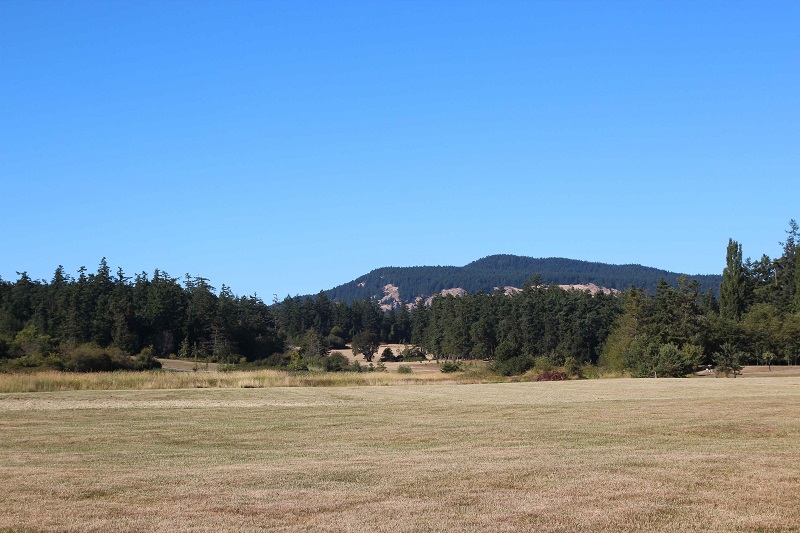Hannah Conservation Easement
San Juan Island
Year Protected: 2004
Land Protected: 150 acres
Public Benefits: Agricultural lands
Watching Bernie Hannah* sift through old newspaper clippings, photos, and farm records, including the original Homestead Certificate dated February 1883, it’s evident that his San Juan Island farm has much history. It’s a rich history woven into the land he’s committed to protecting.
“I want this place to stay a farm,” he says. “It’s belonged to me and my dad (Alvan Hannah), my grand dad, and my great-grandmother before that. Lots of memories.”
As he walks the pasture, he recalls the old barn, once the largest on the island, now gone. He describes how it contained horse stalls, milking cows, a full boxing arena, and a “white lightning” still housed beneath the hayloft and vented out through pipes in the steaming manure pile. “That old pile just never stopped steaming,” he laughs.
A 150-acre portion of Bernie’s farm is now protected by a voluntary land conservation agreement he entered into with the San Juan Preservation Trust in 2004. This voluntary agreement is designed to reduce residential density and to preserve richly vegetated wetlands, seasonal streams, mixed forest, pond and pasture. Bernie’s open field provides a vivid contrast to nearby land once owned by an uncle, now developed into a subdivision known as Hannah Heights. Bernie says that’s exactly the fate he wants to avoid for his acreage.
“It was my grandfather’s wish that the farm remain in one piece. There aren’t that many places like this left on the island.” He looks around. “It’s just great to have the space to walk around the open space. I can see the geese land in the pond and the deer bed down in the field. You can see the weather change in the distance.”
While it’s clear that Bernie feels a deep responsibility to the land and his forefathers, he also has a highly pragmatic side. “I see the land as a piece of ground where you can be somewhat self-sufficient,” he says. “You’ve got an organic orchard and a big organic garden. Got the land to graze livestock. You can be healthy if you live off the land.”
Ambling through the 100-tree apple orchard, Bernie notes that although it’s smaller than the original orchard of 400 trees, it still produces plenty of cider. Each autumn he lets the neighbor kids get in on the cider pressing action, often ending up with more than 150 gallons to freeze and sell over the summer. It’s one of the small ways Bernie can keep working the land he wants to preserve.
*Mr. Hannah has since passed away.

